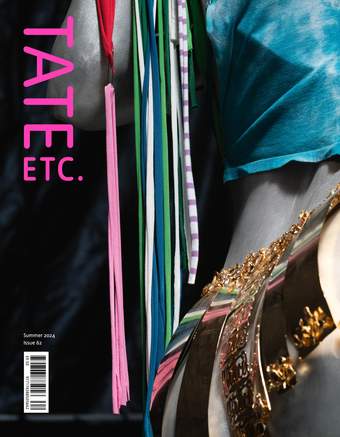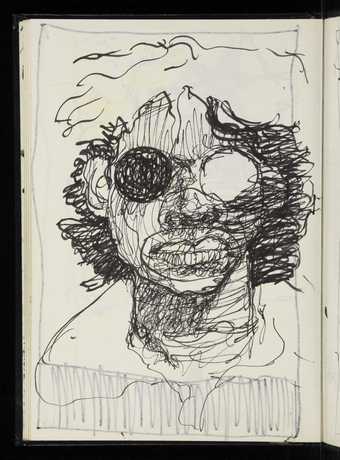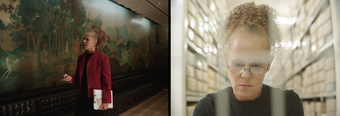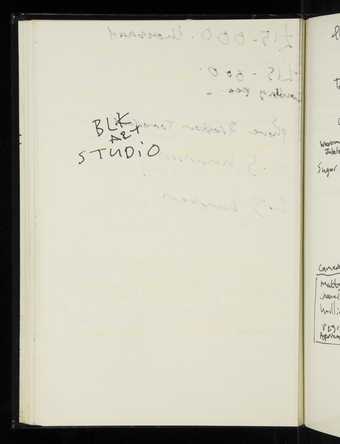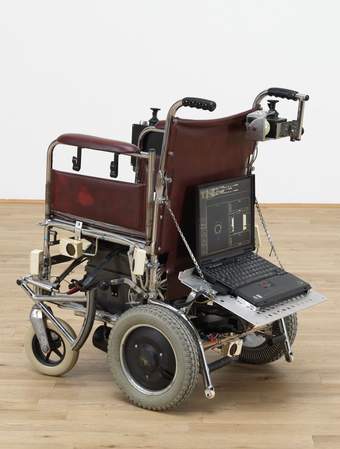
Donald Rodney
Psalms 1997
© The estate of Donald Rodney. Photo © Tate
Apart from the faint clicking of ultrasonic sensors, the occasional clunk of motors engaging, and the random squeak of rubber tyres on polished gallery floors, Donald Rodney’s Psalms 1997 gracefully performs its predefined figure of eight. It will go on doing this forever, unless it’s interrupted by a visitor standing in its path. Then, politely, it stops and manoeuvres around the obstacle to renegotiate its trajectory. The autonomous wheelchair continues to define a space where the artist once was – an algorithm of absence.
Sickle-cell anaemia framed Donald’s life; it didn’t define it, but it punctuated his creative practice with frequent hospitalisations for hip replacements and blood transfusions. Medical technologies were part of his artistic language, which centred on the Black experience and the politics of his own body. Psalms anticipated his absence, with his death coming just a year after its completion.
While sharing a studio with Donald at the Slade between 1985–7, I was charmingly coerced into ‘the Donald Rodney plc’ – a group of friends and artists who collaborated with him on projects including Visceral Canker 1990 and, posthumously, donald.rodney:autoicon v1.0 2000. For Psalms, however, I was more of a translator and, latterly, a caretaker. At the time, I led (and still lead) a research group into digital art and technology at the University of Plymouth. After discussing Donald’s early imaginings for Psalms, I introduced him to Dr Guido Bugmann, who, with his student Kheng Lee Koay, developed a cutting-edge neural network, a precursor to the contemporary machine learning models, to drive the digitally enhanced wheelchair in accordance with Donald’s vision.
Donald’s boundary-fluid artworks expanded the field of BioArt and the creative use of AI at the end of the last century – and are consequently a conservator’s nightmare. The Estate of Donald G. Rodney, driven by Donald’s partner Diane Symons and the artist Keith Piper, have protected these artworks over the years. Psalms, however, ran the risk of becoming a Ship of Theseus of upgrades of electronics and antediluvian computers. But then Theseus didn’t have a neural net to navigate by, or indeed the support of Tate’s time-based media conservation unit to sensitively preserve the work. Even if Psalms will always be an immaterial algorithmic behaviour, Donald, through his absence, remains tangibly present.
Psalms was purchased with funds provided by Tate International Council in 2023. Visceral Canker was presented by Tate Members in 2009. Both artworks are included in a major survey exhibition of the late artist at Spike Island, Bristol until 8 September.
Mike Phillips is Professor of Interdisciplinary Arts at the University of Plymouth, and Director of Research at i-DAT.org.

